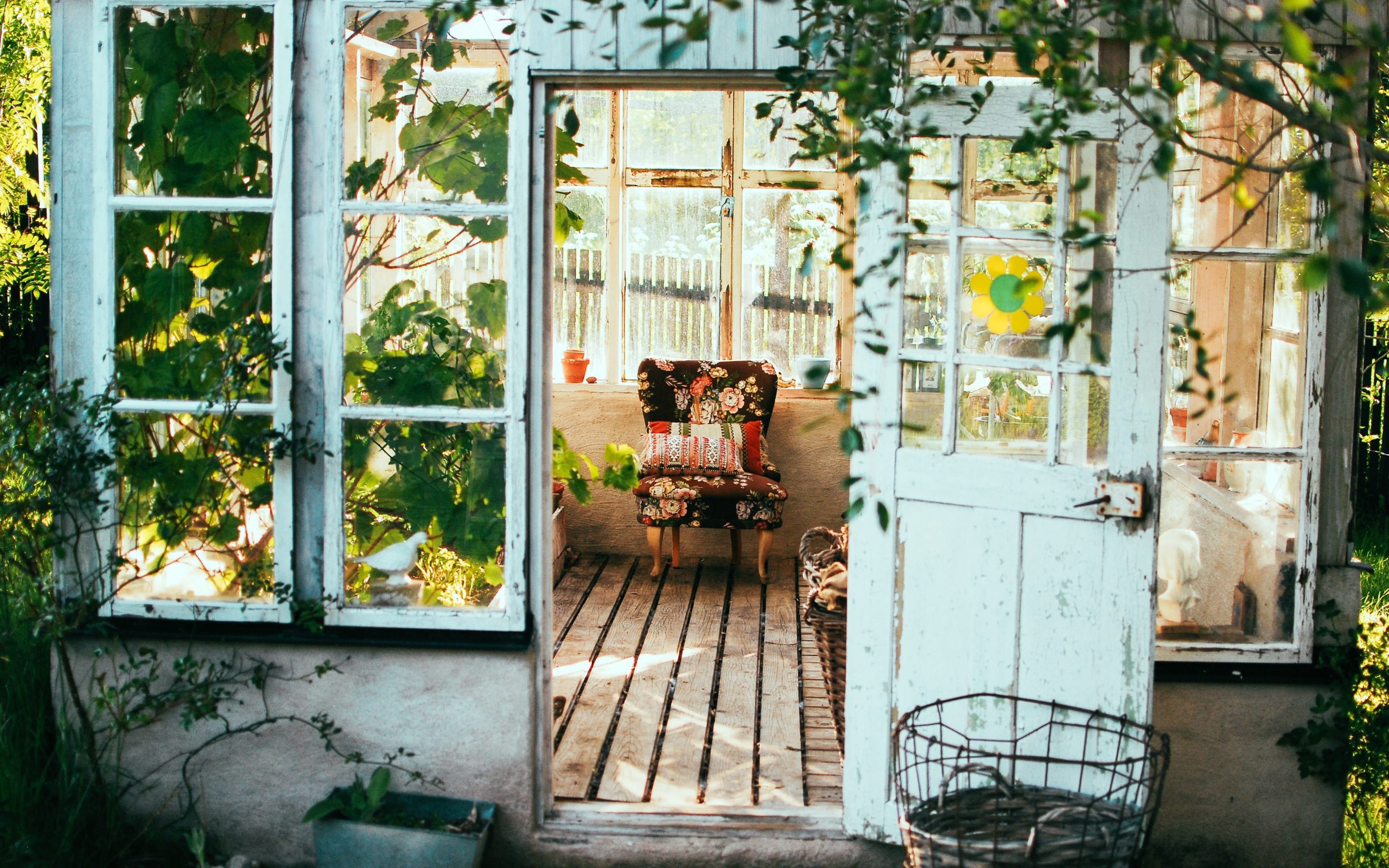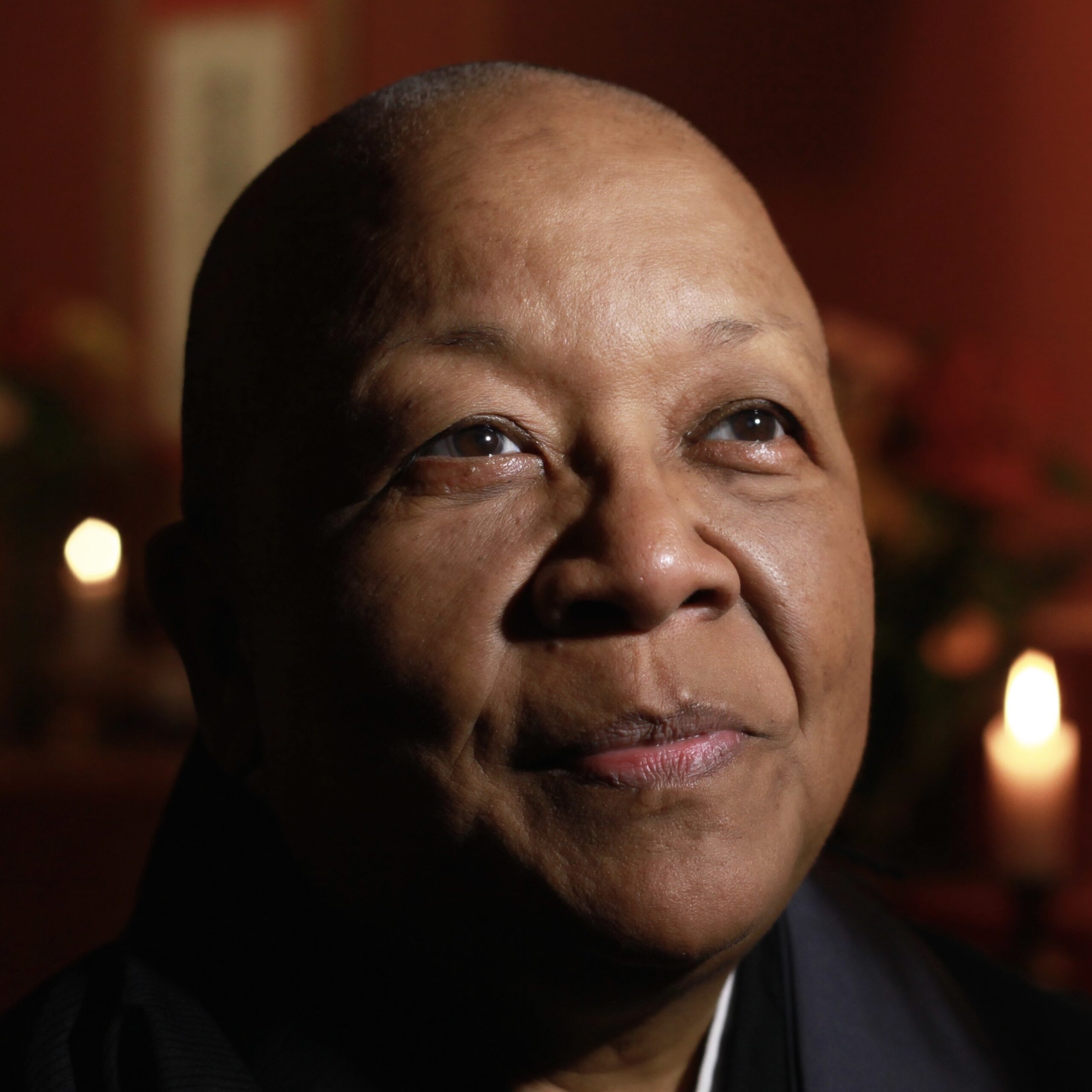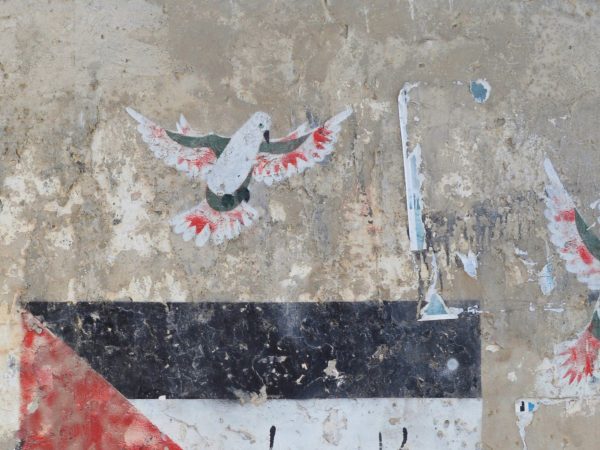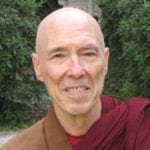When I was teaching at a historically Black college, I realized the conditioning I personally had taken in without even thinking about it. I’m on a Black dominated campus and I see a group of young Black men, and all of a sudden I feel myself tense up. And I thought, wait a minute, I’m Black, they’re Black. What’s going on here? And I realized the intensity of the racism that we are taught is very profound. And because we can be awakened to that, we can stop the behavior that causes us to clutch our purse or cross the street or not speak. These young men that I encountered taught me many deep lessons on interacting with men, because I didn’t have fear so much around older folks, but around young people I did because of all the things I’d seen through my life. Even my neighbors — a friend of mine came to visit with her sons who were White and they were all bald, much like priests are today, and it’s a normal thing for priests, but back then those were skinheads. And so my neighbors called me to make sure I was safe because they saw these bald young White men in front of my house.
So we have all of this conditioning to overcome. And the point is that racism and separation are kind of diseases that we were taught without our permission. We were taught those things by people we loved and trusted and so we had no reason to question it. Now everything we see on television, in the media, kind of reinforces that. We can have a state execute a man that everybody claims is innocent, and the next day sign into law a bill talking about the sanctity of life. And we’re okay with that. There’s something wrong with that.
When we talk about justice, that’s what we’re talking about, justice equaling right action, equaling impartiality.
There’s also something wrong when people gentrify communities. When I moved into my neighborhood nearly 30 years ago, we were a food desert. There were very few supermarkets that sold food that was even up to date, up to standard. I would have to leave my neighborhood to get food for my family. Now we have stores, but we also have the influx of White communities into what were formerly Black neighborhoods and continued notions that these folks have the right to come in and kick out everybody they don’t like. It’s almost laughable. It’s people not understanding that these places have existed for generations. Even in the midst of places that no one else wanted to live, traditions, cultures, everything were established. Recently we found one of our neighborhoods has an extraordinarily high rate of cancer, and it is also a predominantly Black neighborhood. We’re seeing the manifestation of our lack of knowledge of our relationship to each other, of the inseparability of life.
Our teachings tell us, the Buddha said, I see all living beings equally. I have no partiality for them. There is not this one or that one to me, I transcend love and hatred. And when we talk about justice, that’s what we’re talking about, justice equaling right action, equaling impartiality. And this is what the Buddha talks about, that the reign of the dharma, the reign of the love and compassion that we develop for life, purely just life, means that we have to step up and look at what we can do to make sure it [injustice] doesn’t continue. That we are able to stop the flow of separation that continues to damage all of us. And it’s only happening because we feel that we’re not connected to any of it, that it has nothing to do with us. We can see a pipeline spill of 200,000 gallons of oil and think, oh, that’s somewhere up north, has nothing to do with me down here. I got plenty of gas. And that’s what people are doing. Somehow we have to find a way, each one of us individually, to open our hearts and minds to radical impartiality, radical justice for everything, for other beings, for the environment, for even trying to change the institutions that govern our lives. But it has to start with us first.
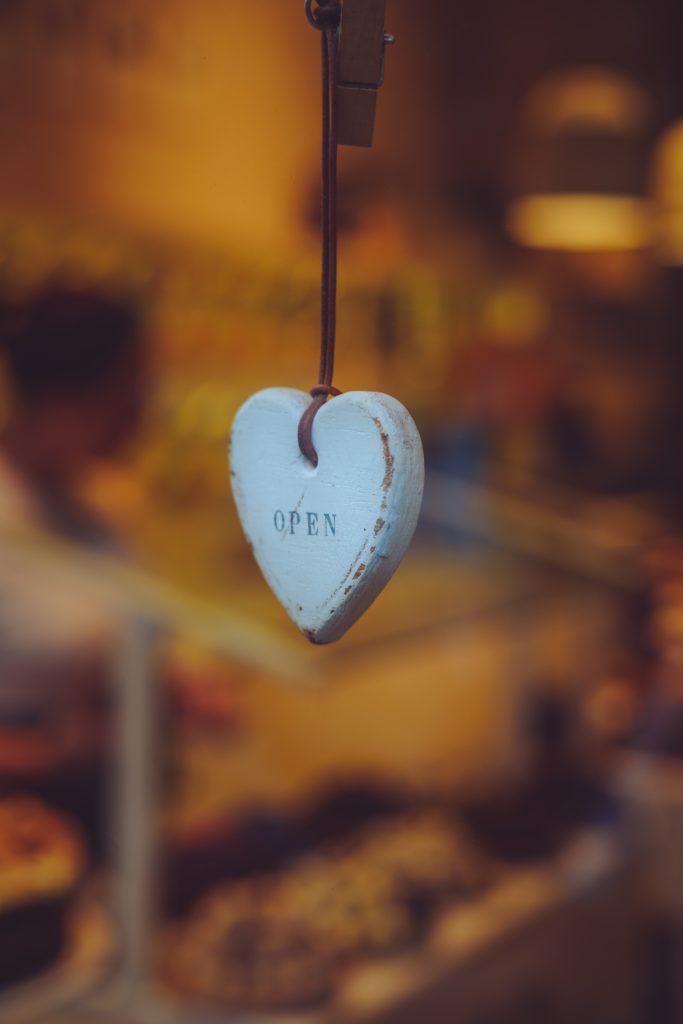
We have a practice that’s called Practice for Self and Other. The understanding of that is that everything we do for ourselves, we are doing for other people. Every act that we take to strengthen our lives, to strengthen our thinking, to really strengthen our ability to be radically hospitable to all beings, we are doing for the entire planet. And somehow that will work, I have no doubt about that. Because the basis of collective action is the idea that we can all do it together, even with differences, honoring our differences, respecting those differences, and utilizing those differences to reach as many avenues open to us as possible. Because using difference, we can encompass the entire world. And without difference, we only have narrow paths. Thank you.
Kristin: Oh my gosh, I love you so much! It’s so good to have you with us. I love your characterization of “radical hospitality” as a kind of guidepost for us, a principle that we can set our compass on and let it guide us. So I’m wondering if you can talk about radical hospitality and how we can use it in the places where we’re really trying to help each other wake up to that conditioning.
Myokei: I think number one has to be our honesty. Just to say, I have a really bad memory, I can’t remember your name. Or, I know I’ve met you before, but I don’t remember where. Just to be upfront. I find the older I get, the more I have to do that anyway. But just to remember that our invitation of trust can be reciprocated, and I think we’ve talked about this before, because I truly believe that the only person you have to trust is yourself. Because you can absolutely trust every single person to be exactly who they are, whether you know who that is or not. All you have to do is be able to handle what shows up and accept it, that that’s who that person is, and not judge it or turn away from it. You know? And if someone chastises you for confusing people say, yeah, well, I do that sometimes, you know, just take it in and let it go.
Every act that we take to strengthen our lives, to strengthen our thinking, to really strengthen our ability to be radically hospitable to all beings, we are doing for the entire planet.
I’ve done it a gazillion times and it can be two Black folks, you know, “you look familiar, but I don’t know who you are, sorry.” But I think the idea is to make it less and less… because we are really looking at each other. You know how much we don’t look at each other? I didn’t realize it until I shaved my head and everybody calls me sir. It always struck me, why do they call me sir? Because I look at me and I see female. So I really had to examine that as a lesson for me, because at first I would get upset about it because I was not used to being bald. But then I realized, I don’t look at people either. And so the radical part of that is that we start looking at each other, really looking at each other.
Like when I meet a cashier at the store, to just have a moment’s conversation, look at their name tags, call them by name, ask them about their day. You know, notice, you look like you’ve been on your feet all day. I hope you get off soon. It’s really fascinating how much people respond and act like you’re their best friend because you’ve noticed that person and you’ve noticed their condition. So that’s, I think, the practice of radical hospitality, to always engage, always look, you know, ’cause we can see it, we’re not stupid. We’re probably a generation of folks that now has to rely on our ability to connect better because there’s so many different ways of not connecting. When you’re in a crowd of folks that are all on their phones, how do you connect? It’s amazing how much you can see when people don’t know you’re watching them. I’m a great people watcher. I like to sit and watch folks and just imagine what’s going on with their lives. I used to do that anyway, but in terms of really looking at people to see their condition, what was I feeling from them? What do I see about how they’re holding their bodies? It’s something I think we all do anyway, but we don’t pay attention to it.
Kristin: Yeah, radical hospitality, it’s almost like we need to find each other’s humanity in this. And that’s really so much about the way that racism divides internally and externally. And so reclaiming that vulnerability is one way to champion humanity.
